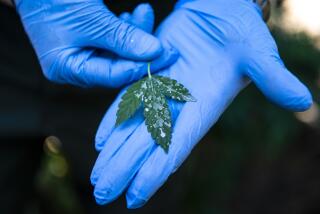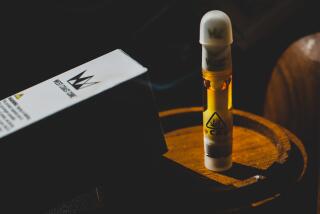Officials urged to cut DNA backlog
A state panel considering criminal justice reform urged the Legislature on Tuesday to immediately find the money to hire lab technicians to reduce a huge backlog of DNA samples that could hold the key to both catching criminals and exonerating the innocent.
The emergency report by the California Commission on the Fair Administration of Justice underscored growing concern among law enforcement officials, defense attorneys and others that the state has fallen critically behind in the voter-mandated testing of DNA from convicted felons, certain misdemeanor offenders and those arrested on suspicion of rape or murder.
As of Jan. 31, more than two years after Proposition 69 authorized expansion of DNA testing, the California Department of Justice had profiled about 740,000 swab samples but still had a backlog of almost 160,000 samples, the report says.
And although the backlog is expected to be less than 60,000 by mid-year, the report says, officials anticipate receiving 240,000 new samples annually.
By 2009, when samples will be required from every adult arrested on felony charges, the number will rise to 400,000 a year, according to the report.
At a time of growing demands, the commission said, the state Justice Department’s DNA lab in the Bay Area city of Richmond is already burdened and struggling to fill 20 vacancies for state criminalists, whose salaries are at least 30% lower than those of their city and county counterparts.
Although the report does not say how much state lawmakers should earmark, the commission emphasized that the need for action is immediate and the potential rewards long-lasting.
Already, the report says, the DNA databank is producing “cold hits” at a “remarkable rate -- 40 were recorded last month just in Los Angeles.”
At the same time, the commission said, delays of six months or more have “become the norm” at local crime laboratories analyzing rape kits.
One crime lab in Los Angeles reported a backlog of 5,000 unopened kits, and officials in Oakland said the city is processing less than half the evidence collected there.
“We can’t go on another year without addressing this,” said Gerald F. Uelmen, the commission’s executive director, in an interview. “The consequences would be criminals remaining at large who should be in custody and people who might otherwise be exonerated sitting” in state prisons and jails.
*
More to Read
Get the L.A. Times Politics newsletter
Deeply reported insights into legislation, politics and policy from Sacramento, Washington and beyond. In your inbox three times per week.
You may occasionally receive promotional content from the Los Angeles Times.










